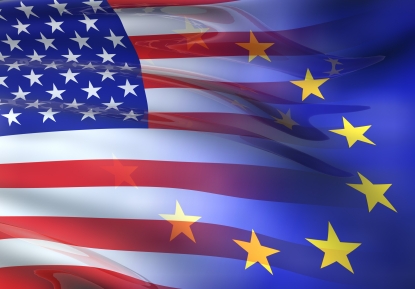The European Union (EU) operates through a complex interplay of institutions, some directly elected and others not, which raises questions about accountability in key decision-making processes. Right now, the core country, Germany, is in utter disarray. The UK famously quit with the Brexit mandate from the people, and now other countries are threatening to withdraw. The unelected Commission is in locked-step with the WEF/NWO elites seeking to depopulate the world, complete the transfer of wealth to the “decision makers”, and lock regular people in a hungry, cold state unable to move or trade without their approval.
Sixteen years ago, the US and EU economies were nearly equal in size.
— Steve Hanke (@steve_hanke) December 30, 2024
Today, the US economy is 50% larger than the EU.
Europe is being STRANGLED by the EU and its Commission President von der Leyen's red tape. pic.twitter.com/NC23A1QZNZ
Directly Elected Element – European Parliament (EP): The EP is the only directly elected body by EU citizens every five years, giving it a democratic legitimacy. It co-decides legislation with the Council of the European Union, shares budgetary authority, and can approve or reject key appointments, like the European Commission President. However, its power is checked by its dependence on legislative proposals from the Commission.
Unelected Elements:
- European Commission: The Commission holds significant executive power, managing day-to-day operations of the EU, enforcing laws, and proposing new legislation. While its President is nominated by the European Council and must be approved by the Parliament, the Commissioners themselves are appointed by national governments, not directly elected. This setup gives the Commission considerable influence over policy without direct voter accountability.
- European Council: Composed of heads of state or government of EU countries, it sets the political agenda and strategic direction for the Union. Although these leaders are elected or appointed at the national level, their role in the EU context lacks direct democratic accountability from EU-wide voters. Their decisions shape the EU’s future but are not subject to direct EU-wide electoral consequences.
- Judicial and Financial Oversight: The Court of Justice of the European Union (CJEU) and the European Court of Auditors are appointed bodies with significant power over legal interpretations and financial accountability, respectively. Neither is directly elected, ensuring their independence but also distancing them from direct democratic oversight.
Unaccountability Concerns:
- Legislative Initiation: The Commission’s exclusive right to propose legislation means that the unelected body can set the agenda, framing the choices available to the elected Parliament. This can limit democratic input into what issues are addressed and how.
- Policy Direction: The European Council’s agenda-setting power, while influenced by national elections, does not directly reflect EU-wide voter preferences, potentially leading to policies that might not align with the broader European electorate’s priorities or desires.
- Checks and Balances: While the system includes checks like the Parliament’s veto power over legislation and appointments, the balance often leans towards the unelected elements due to their agenda-setting capabilities and the complexity of EU governance, where transparency and public understanding can be limited.
In essence, while the EU system incorporates democratic elements, the significant influence of unelected bodies in initiating policy, setting the agenda, and interpreting law can lead to a perception or reality of unaccountability among key decision-makers. This tension between democratic legitimacy and effective governance is a continuous point of discussion and reform within the EU framework.
This image shows the Eurozone, not the EU. Over the past 16 years, seven additional countries have joined the Eurozone, which may make the situation even more concerning if the graph doesn’t account for this enlargement.
